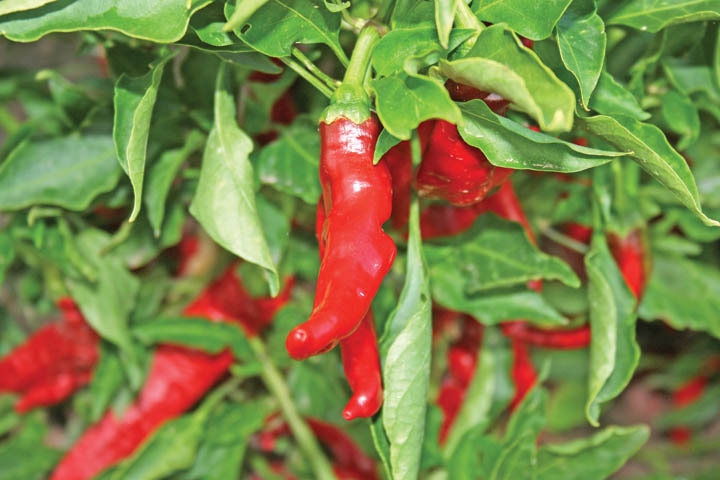
New Mexico chile growers are satisfied to hear that two shipments of Mexican red chile were turned away at two border crossings last week after stink bugs were discovered in both shipments.
The discoveries happened at both the Columbus, New Mexico, port of entry and the Presidio, Texas, port of entry. U.S. Customs and Border Patrol agricultural inspectors placed two truck shipments on hold after an initial inspection turned up signs of “stink bugs.”
“CPB agricultural specialists have discovered living pests in two shipments of red peppers from Mexico point-of-origin. Our inspectors play a critical role in safeguarding the farming industry by stopping potentially devastating pests and diseases from spreading to U.S. crops,” said David Higgerson, CBP acting Director of Field Operations in El Paso. “These recent intercepts are especially significant because of the U.S. chile crop in our region.”
Earlier this year, New Mexico State Extension Agent Woods Houghton warned that the once-lucrative chile industry of New Mexico was under threat from Mexican and South American imports.
“Lower labor costs and the provisions of the North American Free Trade Agreement (NAFTA) have made Mexican chile a major rival, especially in red chile imports. It is also reason for concern that diseases and pests currently unknown in our chile growing region could be introduced and cause extensive damage before we even realize what is happening,” Houghton reported.
New Mexico’s $300 million plus chile industry employs about 2,000 full time jobs and an estimated 10,000 part time jobs, but has been under pressure from foreign imports over the last seven years. Chile acres have diminished from about 35,000 in 1992 to just less than 10,000 acres this year.
“Mexican growers sell red chile cheaper than it costs to grow it in the U.S.,” Houghton warned. “Foreign imports account for about 82 percent of total U.S. consumption of chile and that number is growing.”
A recently adopted law aimed at protecting authentic New Mexico chile went into effect earlier this year and was designed to provide relief from foreign imports that are often confused with locally grown Hatch chiles, a New Mexico favorite. State chile association officials report that impostor products of the state's iconic agricultural product will be guilty of trademark infringement now as a result of the new protective law.
The New Mexico Chile Advertising Act makes it unlawful for vendors to label fresh or processed chile as being from New Mexico unless it was actually grown in the state.
Vendors subject to the new law include groceries, restaurants, convenience stores, farmers' markets and roadside vegetable stands.
As for both recent shipments where pests were discovered at the border, inspectors sent digital images of the insects intercepted in New Mexico to a USDA entomologist for identification. After further investigation, USDA determined the pests to be Brochymena sp. Pentatomidae, commonly called a stink bug species. In the shipment discovered at Presidio, digital photos lead inspectors to identify the pests in that shipment to be Chrysomelidea Epitrix sp., or flea beetles.
“These pests can ruin an entire crop if introduced into an area where there are few safeguards against it,” reported USDA officials.
In response to the discoveries, CPB issued an Emergency Action Notification (EAN) and ordered the shipments returned to their point of origin in accordance with the U.S. Code of Federal Regulations.
While officials say anti-terrorism is the primary mission of U.S. Customs and Border Protection, the inspection process at the ports of entry associated with this mission results in “impressive numbers of enforcement actions” in all categories.
About the Author(s)
You May Also Like




